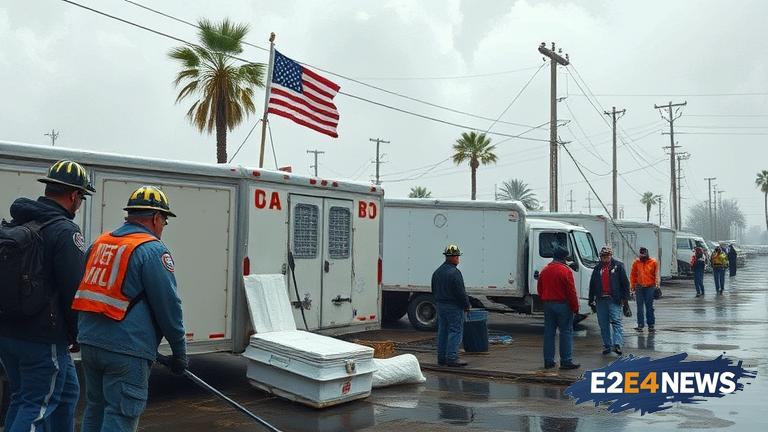The Federal Emergency Management Agency (FEMA) has been a crucial component in the United States’ disaster response efforts, particularly in the aftermath of devastating natural disasters like Hurricane Katrina. However, recent cuts made by the Trump administration have sparked concerns among FEMA staff, who argue that these reductions could undermine the progress made since the catastrophic hurricane struck in 2005. Hurricane Katrina resulted in the loss of over 1,800 lives and $125 billion in damages, making it one of the deadliest and costliest natural disasters in U.S. history. The disaster exposed significant flaws in the country’s disaster response system, leading to a major overhaul of FEMA and the development of new strategies for emergency preparedness and response. Since then, FEMA has made significant strides in improving its response capabilities, including the implementation of more effective communication systems, enhanced collaboration with state and local authorities, and the development of more robust disaster planning and mitigation strategies. Nevertheless, the Trump administration’s cuts to FEMA’s budget have raised concerns among agency staff, who fear that these reductions could compromise the agency’s ability to respond effectively to future disasters. The cuts, which total over $300 million, are part of a broader effort by the administration to reduce government spending and allocate funds to other priorities, such as border security and defense. However, FEMA staff argue that these cuts are misguided and could have severe consequences, particularly in light of the increasing frequency and severity of natural disasters in recent years. Climate change, sea-level rise, and other factors have contributed to a rise in extreme weather events, making it more critical than ever that the United States has a robust and well-funded disaster response system. The concerns expressed by FEMA staff are not limited to the agency’s budget cuts, but also extend to the administration’s broader approach to disaster response and preparedness. The administration’s decision to divert funds from FEMA to support other priorities, such as the construction of a border wall, has been widely criticized by Democrats and disaster response experts. Furthermore, the administration’s efforts to roll back regulations and policies aimed at mitigating the impacts of climate change have also raised concerns among FEMA staff, who recognize the critical role that climate change plays in exacerbating natural disasters. In addition to the budget cuts, the Trump administration has also been criticized for its handling of recent disasters, including Hurricane Maria, which devastated Puerto Rico and the U.S. Virgin Islands in 2017. The administration’s response to the hurricane was widely criticized, with many arguing that it was slow and inadequate, particularly in comparison to the response efforts following Hurricane Katrina. The concerns expressed by FEMA staff are not limited to the agency’s response to hurricanes, but also extend to other types of disasters, such as wildfires, earthquakes, and floods. The agency’s ability to respond effectively to these disasters is critical, particularly in light of the increasing frequency and severity of these events in recent years. In conclusion, the Trump administration’s cuts to FEMA’s budget have sparked concerns among agency staff, who argue that these reductions could compromise the agency’s ability to respond effectively to future disasters. The concerns expressed by FEMA staff are not limited to the agency’s budget cuts, but also extend to the administration’s broader approach to disaster response and preparedness. As the United States continues to grapple with the impacts of climate change and other factors contributing to an increase in extreme weather events, it is critical that the country has a robust and well-funded disaster response system. The progress made since Hurricane Katrina must be preserved and built upon, rather than undermined by misguided budget cuts and policies that prioritize other interests over the safety and well-being of the American people.
